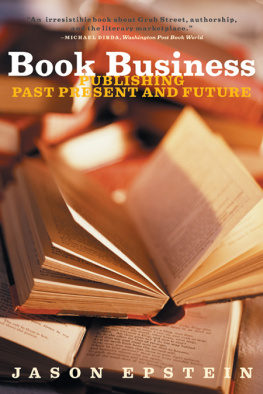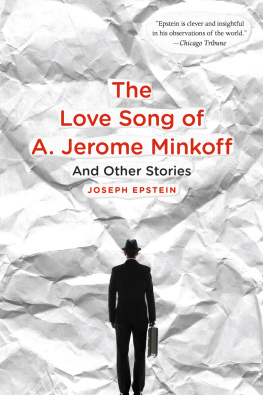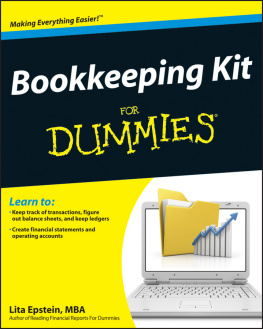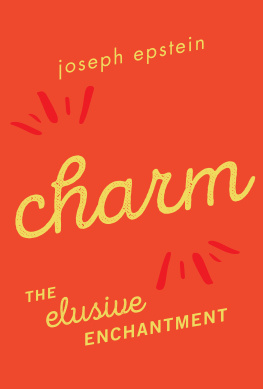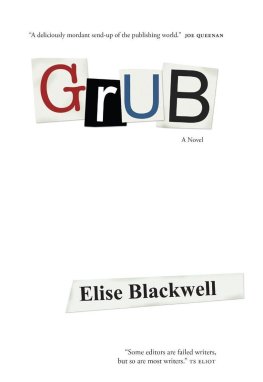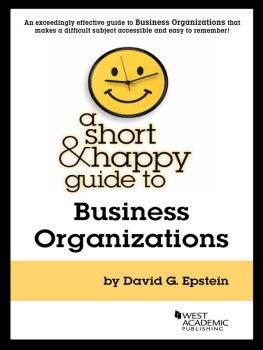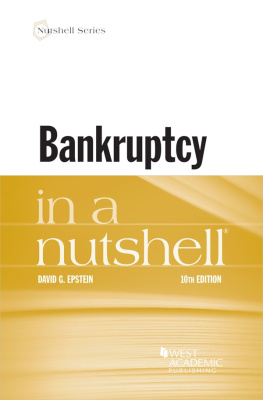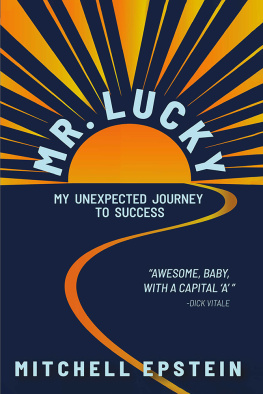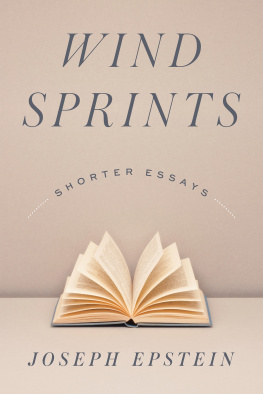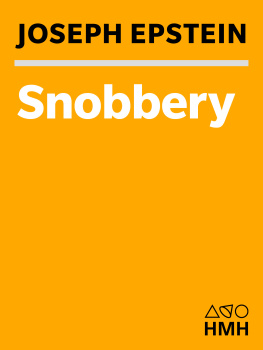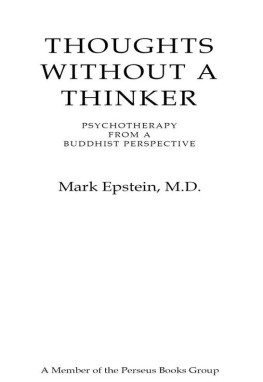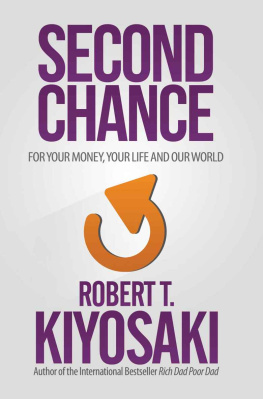
BOOK
BUSINESS
Publishing
Past Present and Future
By Jason Epstein
BOOK BUSINESS is the first in a series
published by W. W. Norton & Company and
the New York Public Library Center for
Scholars and Writers.

Copyright 2001 Jason Epstein
The name The New York Public Library is a registered mark and
the property of The New York Public Library, Astor, Lenox
and Tilden Foundations.
All rights reserved
Printed in the United States of America
First Edition
For information about permission to reproduce selections from
this book, write to Permissions, W. W. Norton & Company, Inc.,
500 Fifth Avenue, New York, NY 10110.
The text of this book is composed in Mrs Eaves Roman
with the display set in Mrs Eaves Petite Caps
Desktop composition by Molly Heron
Manufacturing by The Haddon Craftsmen, Inc.
Book design by Rubina Yeh
Library of Congress Cataloging-in-Publication Data
Epstein, Jason.
Book business : publishing past, present, and future / by Jason Epstein.
p. cm.
Includes index.
ISBN 0-393-04984-1
ISBN 978-0-393-10377-9 (e-book)
1. Publishers and publishingHistory20th century. 2. Publishers
and publishingForecasting. 3. Epstein, Jason. I. Title.
Z280 .E67 2001
070.5'09dc2100-060079
W. W. Norton & Company, Inc.,
500 Fifth Avenue, New York, NY 10110
www.wwnorton.com
W. W. Norton & Company Ltd.,
10 Coptic Street, London WCIA IPU
To
Judith Miller
The most primitive idols, even those which have long been abandoned to the jungle and the sand-drift, are land-marks in the journey of the human soul: they represent a search for coherence in the confusions and fears of living. So this venerable House of Lords was not simply a constitutional relic of the great landed fortunes; it was also a fetish, it meant the ideally paternal responsibility of the noble few. And though this meaning was quite irrelevant to the twentieth century yet those who tried to preserve it were not merely idle or arrogant men. They saw the passing of certain values which at their best were very high and at their worst were very human; they did not realize that life consists in change, that nothing can stand still, that todays shrines are only fit for tomorrows cattle. Clinging to the realities of the past, they prepared to defend their dead cause to the finish.
George Dangerfield, The Strange Death of Liberal England
L ong before books existed as physical objects, storytellers handed down to successive generations essential data in narrative formas in The Odyssey, for example, with its advice to seamen and husbands, or the moral and practical wisdom of the books of the Old Testament and similar tribal lore. Even before language existed in our sense at all, stories must have been told by rhythmic gesture accompanied by meaningful phonemes to the beat of stone upon stone or to the sound of hollowed logs used as drums, by breath amplified by passage through the horns of animals, and by plucked strings: ancestral operas. Musical utteranceverseis the earliest literary technology, easily stored in the mind and chanted as children still chant their alphabets and numbers. By the dawn of our literate civilization the new technology of writing meant that stories no longer had to be memorized collectively as verse but could be written down. Thus stories were stored for future use as prose; but even prose with its regular punctuation reflects its musical origins.
Written language is a recent technology in the long history of our species. It evolved as far as we know and as common sense suggests from counting, keeping score: a commercial activity. The ancient traders of the Near East numbered their bags of grain and flasks of wine with slashes accompanied by pictographs incised or scored upon tablets of clay and stone and presumably also upon wooden boards. Twenty such incisions are still called a score, and scorekeepers still keep score on boards. These scored incisions, the ancestors of adjectives and nouns, were the origin of written language. Eventually, pictographs, reduced to their phonemesalpha, beta, and so onbecame alphabets, and some five hundred years ago this powerful technology was greatly amplified by the invention of movable type, which in its European version gave birth to the Reformation, the Enlightenment, the scientific and industrial revolutions, and the societies that resulted: in other words, our present world with all its wonders and woes. Books in which stories were stored for future use could now be carried to the ends of the earth and would eventually become the stock in trade of bookstores.
In the past dozen years movable type has been replaced by technologies that were unimaginable when I entered the book business in the 1950s. Like the technologies of oral and written language and of movable type, these electronic technologies will radically change the way information is transmitted, stories are read, and cultures are formed. Book publishing in the next ten or twenty years will be very different from the quaint trade that I entered fifty years ago.
Technologies change the world but human nature remains the same. If this were not so, such best-sellers as The Iliad, The Psalms of David, and Beowulf would be unintelligible to us today. The successive technologies of language, writing, and movable type have put increasingly powerful tools in the hands of storytellers, tools whose uses could not have been imagined when these technologies were new. It will be for our children and their children to learn the meaning of the electronic technologies that are now on the horizon. The book business as I have known it is already obsolete, but the defining human art of storytelling will survive the evolution of cultures and their institutions as it always has. New technologies change the world but they do not erase the past or alter the genome.
Books as physical objects will not pass away to be replaced by electronic signals read from glowing, hand-held screens. Nor will bookstores vanish. But they will coexist hereafter with a vast multilingual directory of digitized texts, assembled from a multitude of sources, perhaps tagged for easy reference, and distributed electronically. From this directory readers at their home computers may transfer the materials they select to machines capable of printing and binding single copies on demand at innumerable remote sites and perhaps eventually within their own homes. One such location might be a kiosk at the corner of my Manhattan street while readers at the headwaters of the Nile or in the foothills of the Himalayas will have similar access to the worlds wisdom from their own nearby kiosks. The appropriate technology, in embryo, is already at hand and I have seen it. The future that it implies cannot be evaded. I await it with wonder and trepidation.
This book is an expanded version of three lectures that I delivered in October 1999 at the New York Public Library, sponsored by the Center for Scholars and Writers there. I am grateful to Peter Gay, director of the center, and to Paul Leclerc, president of the library, for inviting me to inaugurate this series of lectues and to Peter for having read and improved this manuscript. I am especially grateful to my good friend Barbara Goldsmith, a trustee of the library, for urging me to accept the invitation when my strong desire had been to forgo the honor in favor of a more qualified speaker, chosen from a dozen or more candidates whose names came easily to mind. I am also grateful to Drake McFeely, president of W. W. Norton, who urged me to expand my lectures and served as my editor, a chore beyond the call of duty and one whose rigors I know all too well. Further thanks to Mr. McFeely for putting me in the hands of his able colleague Sarah Stewart, and his assistant, Eve Lazovitz. Robert Silvers and Barbara Epstein of the
Next page
